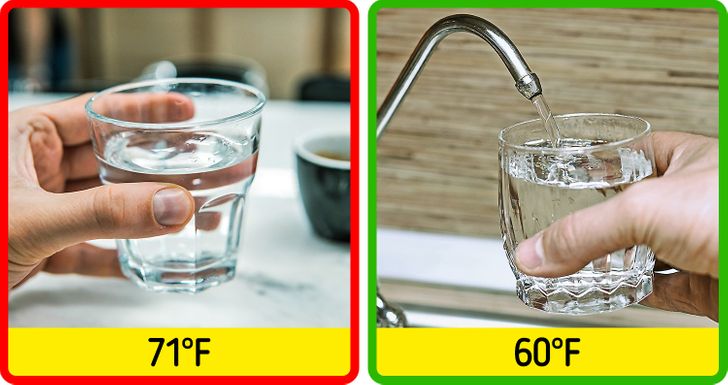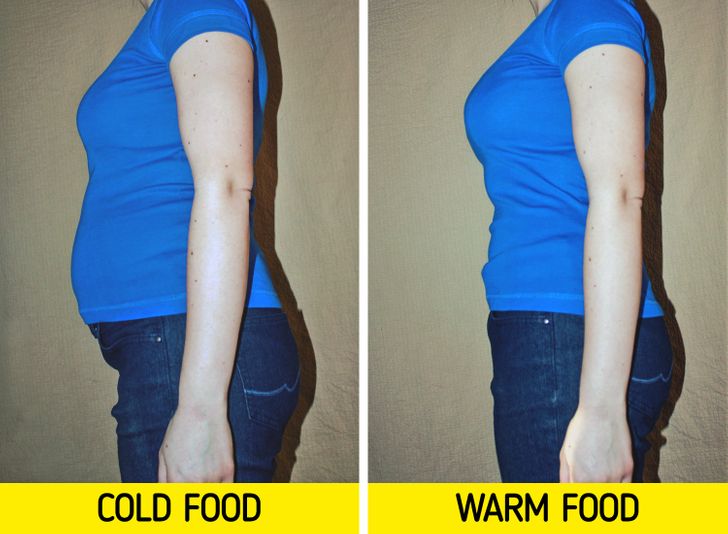4. Cold water is absorbed faster than hot.

Cold water is said to be emptied from our stomach a lot faster and therefore absorbed better than when it’s hot. Another benefit is that cold water helps increase endurance for those who train on a daily basis or very often. Also, it was found that warm water will make you drink smaller quantities, something that could lead to dehydration. On the other hand, drinking relatively cold water (16°C or 60°F) is said to be the absolute best temperature.
This is because people were found to drink more water with that temperature and sweat less. However, you should be very careful with drinking cold water if you suffer from conditions that affect the esophagus. In these cases, you should resort to warm water so your food pipe feels relieved.
5. Hot food keeps you full for longer.

The reason this happens is that hot food doesn’t make your appetite return to you that fast. This is due to the nutrients that are released in your food, making it taste so much better. So, your feeling of satisfaction is highly increased and the speed by which you consume your dish is decreased. While you’re eating slowly, your brain is getting signals that you are starting to become full.
So, eating slowly allows you to eat just as much as you need and your brain suppresses your appetite for longer after you’ve finished eating. A great example is soup, which isn’t only eaten hot but is also almost only water. The liquid helps you eat it a lot easier and it fills you up a lot faster than solid and cold food.
6. Cold and hot food can increase your body temperature.

There is no doubt that hot drinks, like coffee, tea, and soup, can make you feel warm and fuzzy. But there are also some cold drinks and foods that can contribute to increasing your body temperature. Ice cream, for instance, is also a delicious food that might give you the chills at first during the cold months, but later, it makes you feel warm.
That’s because of its high fat and protein content, which heat the body up while you digest the food. Also, your body puts in much more energy to digest the fat, an effort that increases your temperature and makes you feel hotter.
7. Hot food promotes intestinal health.

When you cook a meal above 149°F (65°C), it’s very hard for any possible micro-organisms to survive and cause you harm. The same applies to water that you’re not sure the quality of. On the other hand, cold carbonated drinks, like soda, can cause discomfort to your stomach and even nausea. Another thing cold food can cause is the formation of gas in your gut, something that could result in bloating.


